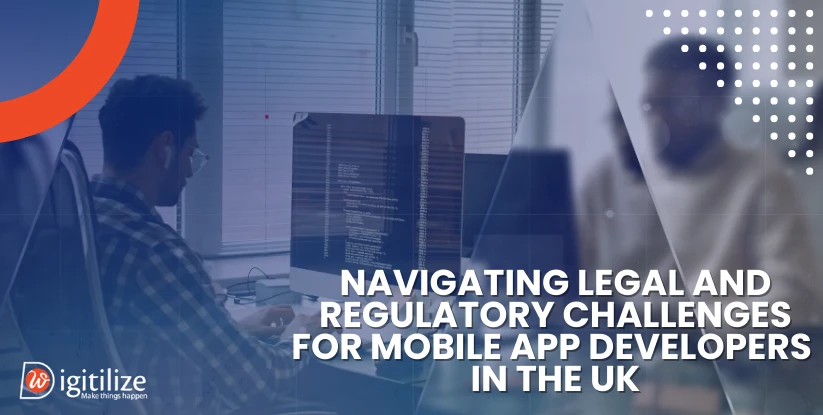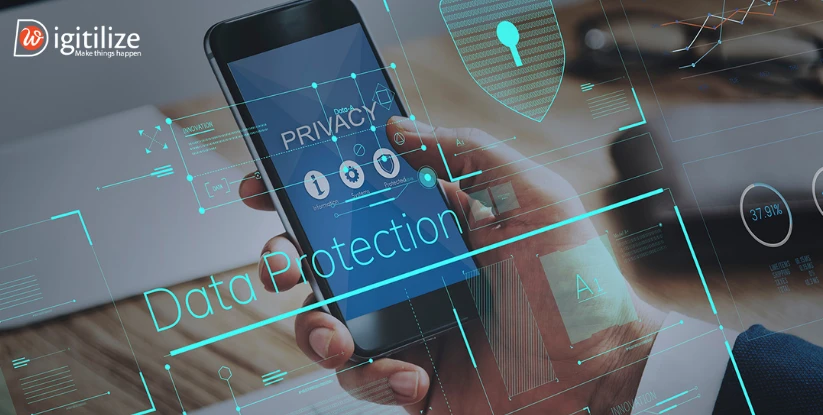Navigating Legal and Regulatory Challenges for Mobile App Developers in the UK

The ever-evolving field of software and app development is expanding at an astounding rate. Nonetheless, navigating legal and regulatory challenges for mobile app developers in the UK is necessary in light of this innovation. It’s evident that there is a sizable market, and there may be advantages to pursuing your concept if you have one. Before you start writing code, you should be aware of a few legal factors that could affect your app. Learn more by continuing to read!
Understand the navigating Legal and Regulations for Mobile App Developers in the UK
To guarantee user safety, data privacy, and ethical conduct, developers of apps must abide by several legal and regulatory regulations. Serious repercussions follow non-compliance, including harm to one’s reputation, fines, and erosion of user confidence. Following all legal and regulatory regulations is important for the following reasons:-
Contracts That Are Enforced Worldwide
-
Mobile Application Confidentiality
-
Liability of Mobile Apps
But since it’s an internet program, there are security issues related to cyberspace. Consider scams and data breaches! Thus, it is your responsibility as an app developer to take precautions to reduce your exposure to these kinds of hazards. Exclusion clauses and several other forms of liability releases may address liabilities. Moreover, depending on how these terms are written, your obligation may be limited or excluded.
-
Keeping the IP of Your Mobile App Safe

Your business probably relies heavily on your intellectual property (IP). Any intangible item you own, including slogans, logos, or even fragrances, is considered intellectual property. Your best option if your mobile app contains intellectual property is to take precautions against rivals or unapproved third parties. Trademarks and patents are two forms of intellectual property that can be protected; both need registration with the Intellectual Property Office (IPO). You can incorporate confidentiality terms in your contracts or non-disclosure agreements (NDAs) if you would like to safeguard intellectual property that cannot be registered.
-
Key Parties Contracts
-
App Store Policies
-
Conditions and Terms for Mobile Apps
Challenges of Legal and Regulatory for Mobile App Developers in the UK

-
The intricacy of regulations
Example: In order to protect patient data security and privacy, a healthcare app developer needs to adhere to HIPAA rules. Therefore, failing to do so might result in serious consequences and harm to your reputation.
-
Interjurisdictional Cooperation
-
Security & Privacy of Data
Example: To protect consumers’ financial information and stop identity theft, banking app developers have to abide by strict data privacy standards.
-
Vendor Compliance
-
Accessibility
-
Frequent Updates
-
Testing and Assurance of Quality
-
Legal Repercussions
Final thought
One of the most important tasks for developers is navigating legal and regulatory challenges for mobile app developers in the UK.Maintaining compliance calls for continual oversight and frequent audits, as it is not a one-time event. By using efficient compliance management techniques and adhering to best practices, developers may negotiate the complexity and reduce any hazards. Hence, contact seasoned developers who put legal and regulatory compliance first to make sure the app compliance strategies with all norms and requirements by getting in contact with mobile app development services.
Therefore, contact DigitilizeWeb to make compliance your driving concept and create apps that both satisfy user demands and adhere to the constantly shifting regulatory landscape.
FAQ
Frequently Asked Questions
In order to guarantee that software applications fulfill legal and quality criteria, regulatory compliance in software refers to abiding by certain guidelines, standards, and regulations established by authorities or trade associations.
In order to guarantee the safety, effectiveness, and quality of pharmaceutical goods, regulatory compliance in the pharmaceutical sector means abiding by stringent rules and regulations. This covers labeling specifications, Good Manufacturing Practices (GMP), and other things.
Regulation and compliance differ primarily in that the former pertains to adhering to set regulations or standards. Regulation, on the other hand, is the process of establishing and upholding such guidelines. Compliance refers to abiding by the rules.
Reskinning applications is essentially the act of altering an app's front picture. It is quite legal to do this, and you can actually use a lot of different apps to accomplish this. Hence, to avoid violating any copyright laws, it's crucial to confirm that all of the images being remastered have authorization to be used.

